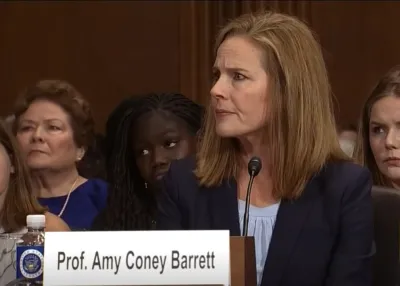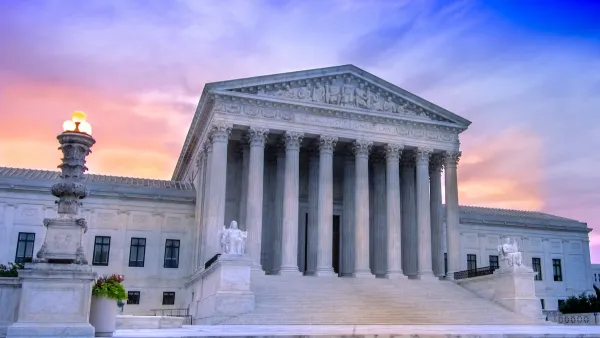A month ago, Barrett dismissed a challenge to Chicago's deal with the Obama Center by rejecting a very expansive claim of a "taking" under the 5th Amendment and by showing great deference to the city.

Amy Coney Barrett, President Trump’s nominee to replace Ruth Bader Ginsburg on the U.S. Supreme Court, has a thin judicial record on property and environmental issues. Environmental group are excoriating Barrett as a threat to all efforts at environmental protection, particularly combatting climate change. And many environmentalists are concerned that by reducing the number of liberal justices on the high court to three, public-interest-oriented cases in the environmental and property arenas won’t even get a hearing in front of the Supreme Court because it takes four votes to hear a case.
To be sure, Barrett’s confirmation would pull the court in a conservative direction on property and environmental issues. Recently she joined a majority of the Seventh U.S. Circuit Court of Appeals in rejecting the argument that wetlands surrounded by residential development, 11 miles from the nearest navigable waterway, required a federal permit, as the Army Corps of Engineers argued. But she did not write the ruling.
And In the one environmental/property opinion she has written as a member of the Seventh Circuit – issued only a month ago – Barrett rejected a very expansive federal takings claim and showed extreme deference to the City of Chicago. She also showed herself to be extremely careful in her legal reasoning and an unusually clear and accessible writer of judicial opinions.
FULL STORY: Barrett's Only Property Rights Ruling: Careful, Narrow, Deferential

National Parks Layoffs Will Cause Communities to Lose Billions
Thousands of essential park workers were laid off this week, just before the busy spring break season.

Retro-silient?: America’s First “Eco-burb,” The Woodlands Turns 50
A master-planned community north of Houston offers lessons on green infrastructure and resilient design, but falls short of its founder’s lofty affordability and walkability goals.

Delivering for America Plan Will Downgrade Mail Service in at Least 49.5 Percent of Zip Codes
Republican and Democrat lawmakers criticize the plan for its disproportionate negative impact on rural communities.

Test News Post 1
This is a summary

Test News Headline 46
Test for the image on the front page.

Balancing Bombs and Butterflies: How the National Guard Protects a Rare Species
The National Guard at Fort Indiantown Gap uses GIS technology and land management strategies to balance military training with conservation efforts, ensuring the survival of the rare eastern regal fritillary butterfly.
Urban Design for Planners 1: Software Tools
This six-course series explores essential urban design concepts using open source software and equips planners with the tools they need to participate fully in the urban design process.
Planning for Universal Design
Learn the tools for implementing Universal Design in planning regulations.
EMC Planning Group, Inc.
Planetizen
Planetizen
Mpact (formerly Rail~Volution)
Great Falls Development Authority, Inc.
HUDs Office of Policy Development and Research
NYU Wagner Graduate School of Public Service





























